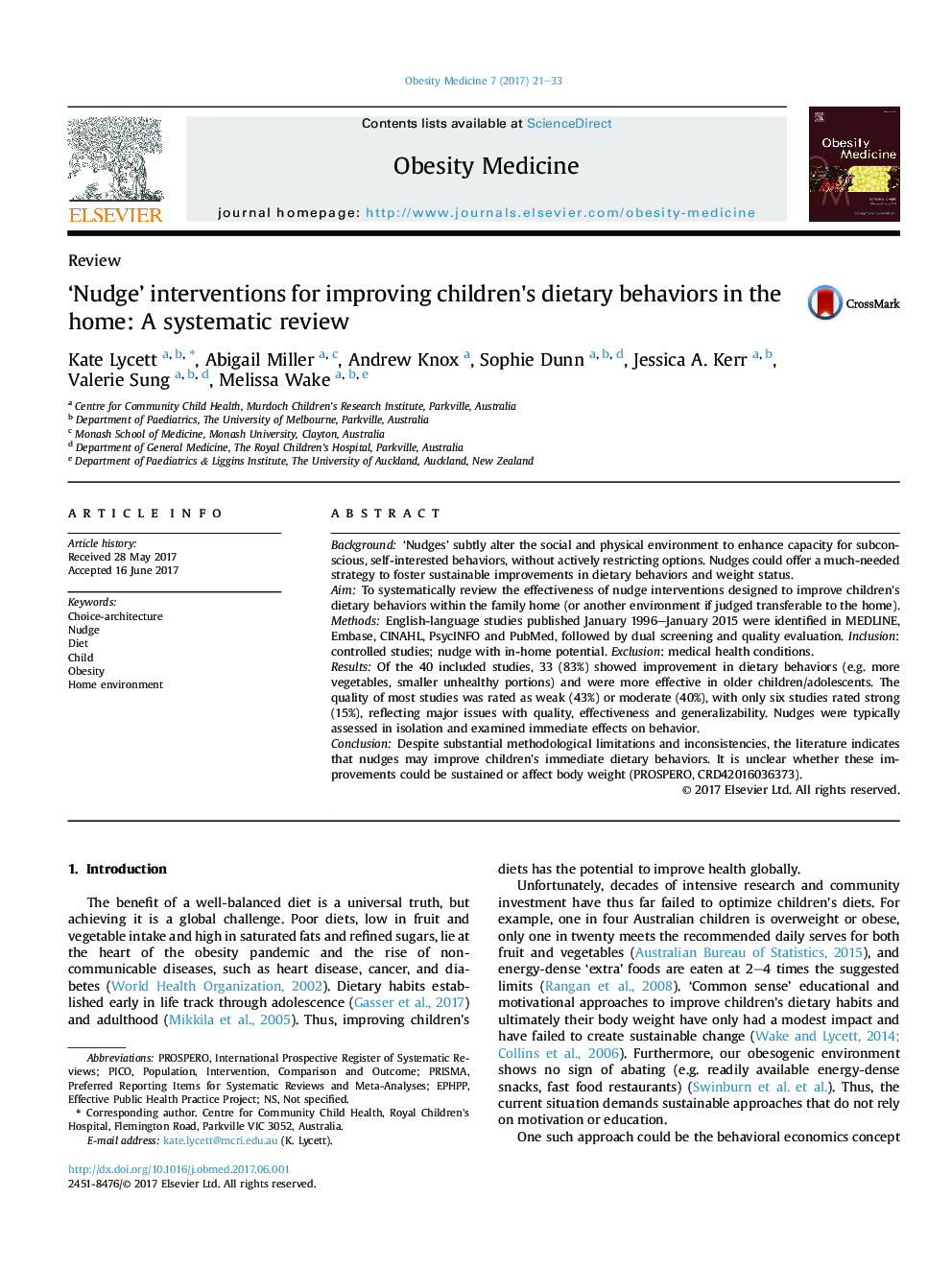| Article ID | Journal | Published Year | Pages | File Type |
|---|---|---|---|---|
| 5123763 | Obesity Medicine | 2017 | 13 Pages |
Background'Nudges' subtly alter the social and physical environment to enhance capacity for subconscious, self-interested behaviors, without actively restricting options. Nudges could offer a much-needed strategy to foster sustainable improvements in dietary behaviors and weight status.AimTo systematically review the effectiveness of nudge interventions designed to improve children's dietary behaviors within the family home (or another environment if judged transferable to the home).MethodsEnglish-language studies published January 1996-January 2015 were identified in MEDLINE, Embase, CINAHL, PsycINFO and PubMed, followed by dual screening and quality evaluation. Inclusion: controlled studies; nudge with in-home potential. Exclusion: medical health conditions.ResultsOf the 40 included studies, 33 (83%) showed improvement in dietary behaviors (e.g. more vegetables, smaller unhealthy portions) and were more effective in older children/adolescents. The quality of most studies was rated as weak (43%) or moderate (40%), with only six studies rated strong (15%), reflecting major issues with quality, effectiveness and generalizability. Nudges were typically assessed in isolation and examined immediate effects on behavior.ConclusionDespite substantial methodological limitations and inconsistencies, the literature indicates that nudges may improve children's immediate dietary behaviors. It is unclear whether these improvements could be sustained or affect body weight (PROSPERO, CRD42016036373).
